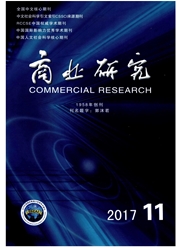

 中文摘要:
中文摘要:
基于宏观环境对微观主体投资行为影响的理论预期,以及对我国产能过剩行业产能调整的思考,本文运用上市公司数据,在构建市场状态指数的基础上对我国宏观经济环境影响公司投资的作用路径与效果进行实证检验。结果表明:宏观经济环境并未直接影响投资,而是通过改变微观主体对市场状态的预期,使其投资决策发生了由意欲退出转为进入的逆转性变化;利率并未有效发挥对投资的调节作用,这也是当前市场中大量“僵尸”企业形成的主要推手;7个产能过剩的典型行业资本增长率并未拉低其行业资本回报率,致使微观主体缺乏主动调整产能乃至退出的内在动力。因此,化解产能过剩需政府与市场有机结合才能奏效。
 英文摘要:
英文摘要:
Based on the theory expectation of the effects of the macro environment on micro investment behavior and the reflection on the adjustment of Chinese overcapacity industry, the paper empirically tested the path and the result of the effect of Chinese macro environment on companies investment using listed companies data on the basis of building the in- dex of the market state. The result shows that the macro environment does not affect the investment directly, but makes investment decisions change reversely from quitting to entering by changing the micro expectation of market state ; the in- terest rate dose not play an effective role in regulating the investment but promotes a large number of "zombie" companies formed; the industry returns on capital are not pulled down by capital growth in seven typical overcapacity industries, re- suiting in lack of intrinsic motivation to quit by adjusting production capacity. There needs to an effective cooperation be- tween government and market to resolve the overcapacity issue.
 同期刊论文项目
同期刊论文项目
 同项目期刊论文
同项目期刊论文
 期刊信息
期刊信息
